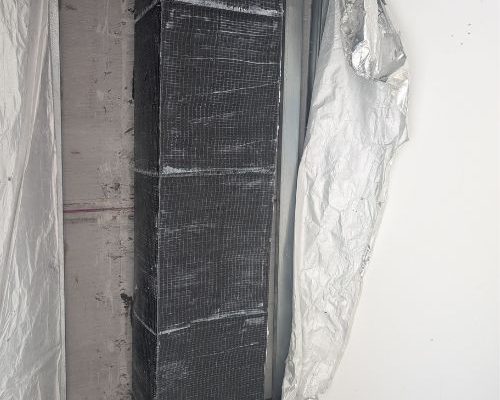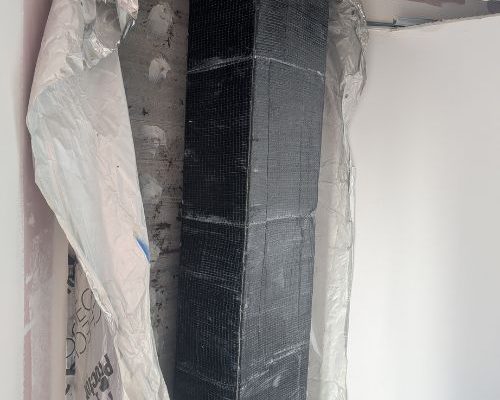Scope of Work:The Lisbon Street development in Leeds is a major mixed-use regeneration project, revitalising the former Leeds International Swimming Pool site. The scheme includes student accommodation, residential apartments, and commercial spaces designed to meet the needs of a growing urban population. One of the focal points of the project is a 24-storey Purpose Built Student Accommodation (PBSA) building, which topped out in Spring 2025. Despite reaching this milestone, the project faced challenges stemming from earlier construction stages under a previous contractor that had since entered administration. The incoming team made significant strides in rectifying substandard works, with just two problematic columns on the 7th and 9th floors remaining as critical structural concerns.
SLAB STRENGTHENING FOR A DESIGN ERROR
Duration:
3 Days


Project Details
The Challenge
The two reinforced concrete columns in question, located on different floors of the PBSA building, were found to have inadequate concrete strength. These structural weaknesses had to be addressed to ensure the columns could meet design capacity and comply with safety regulations. Further complicating the issue, one of the columns was situated just 20mm away from an existing façade panel fixing location, making traditional strengthening methods such as concrete jacketing or steel encasement completely unfeasible. A precise, low-profile, and high-strength solution was required—one that could be implemented in tight spaces with minimal disruption to surrounding components.
The Solution
Etive Consulting Engineers approached CCUK to design, supply, and install a carbon fibre reinforcement solution. CCUK responded with a tailored strengthening scheme using SikaWrap 900C, a high-performance carbon fibre reinforcement material. The design phase was completed within a week, and following swift approval from both the client and the structural engineering team, work commenced on site.
Due to the compact and confined nature of the working area—particularly where only a 20mm gap existed between the column and the façade—CCUK deployed two senior fibre wrap technicians with specialist experience in detailed, spatially constrained installations. The ultra-thin profile of the CFRP system, measuring just 1mm per layer, allowed the team to complete the wrapping process without interfering with the façade panel fixings. With careful planning, steady hands, and precise coordination, the wrapping was passed through the narrow space and applied successfully to both columns.
The Result
The column strengthening works were completed in just two days, resolving one of the final structural legacy issues on the project. The carbon fibre system not only delivered the required performance in terms of increased strength and load-bearing capacity but also did so without the need for invasive or bulky methods. The CFRP solution offered a clean, efficient, and cost-effective approach that fit seamlessly within the tight spatial constraints of the site. Thanks to the speed of deployment and minimal disruption, the main construction programme remained on track, helping to move the Lisbon Street development one step closer to completion. This case once again highlighted the adaptability and precision of carbon fibre solutions in complex refurbishment and remediation settings.






